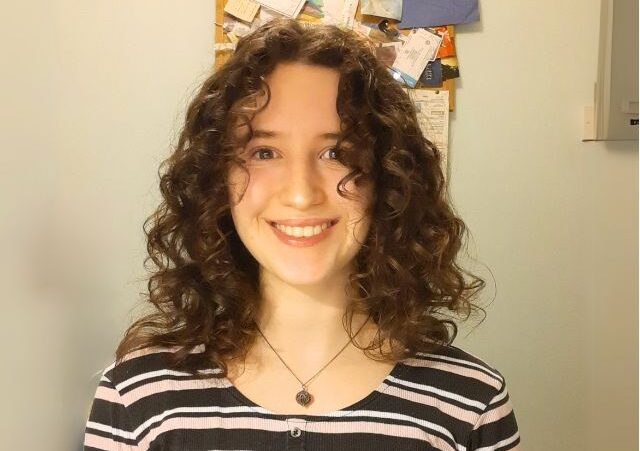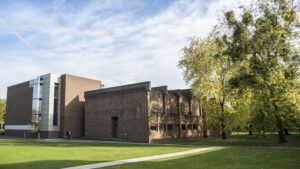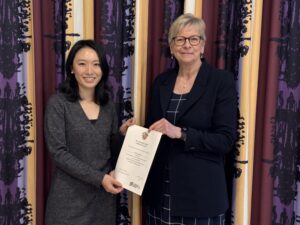Churchill College Geography undergrad Reka Ungar spent last summer investigating one of the planet’s most dangerous – yet under-researched – natural hazards, glaciated volcanoes. The eight-week research project, supported by College funding, focused on evaluating the risk to communities living near these icy giants, many of which are situated in remote and data-poor regions of the world.
As Reka explains, despite representing only a small proportion of the world’s volcanoes, glaciated volcanoes are responsible for over 65% of eruption-related fatalities. A stark example is the 1985 eruption of Colombia’s Nevado Del Ruiz, where a lahar – a fast-moving volcanic mudflow – killed more than 20,000 people in the town of Armero. The tragedy highlighted the immense destructive power of volcanic activity in glaciated environments, and the urgent need for better risk mapping and mitigation strategies.
Building on previous research, including the first global database of glaciated volcanoes published by Edwards et al. in 2020, Reka worked on a research project at the Cambridge Complex and Multihazard Research Group (CoMHaz) aimed at enhancing the understanding of human exposure to glacio-volcanic risk. The work involved expanding the existing database by incorporating population data, historical census records, and future demographic projections to identify how many people are currently – or may soon be – living in lahar hazard zones.
Focusing on understudied regions such as central Mexico and Russia’s Kamchatka Peninsula, the project helped produce detailed population exposure maps, providing a vital resource for decision-makers in at-risk areas.
“The aim was to go beyond just identifying where these volcanoes are. We wanted to understand who is at risk and how that’s changing over time. It’s the human element that really matters when thinking about hazard and risk.”
Reka also had the opportunity to attend her first academic conference where she presented a poster of her research. “It was a fantastic opportunity to not only develop my technical and analytical skills but also to share my work in a professional environment. I found the whole experience incredibly valuable.”
The opportunity has already begun to shape Reka’s future aspirations. “This project has strengthened my desire to continue in research after my degree and helped me realise how much I enjoy uncovering new ideas, particularly in glaciology. I also made useful academic connections which could be really important for my future.”
Projects like this are made possible through the College funded Summer Opportunities Bursary scheme which supports students undertaking research over the summer break. This financial backing gives students the chance to deepen their academic interests, gain hands-on experience, and explore future career paths outside of conventional internships.
“I think funding of this kind is incredibly important,” says Reka. “It allows people to explore their interests in a meaningful way and gives you the chance to try something different without committing long-term. It can really broaden your horizons.”
This type of support also helps ensure students can access opportunities regardless of their financial background. “It was amazing to be able to spend time working on something I care about without having to worry about the cost. I’m really grateful to the College and donors who make this possible.”
The Summer Opportunities Bursary Fund
This was the third year that Churchill College offered a number of ‘Summer Opportunities Bursaries’ to support Churchill undergraduates pursuing a summer project outside of their academic course. These sought-after bursaries cover a period of up to 8 weeks, during which bursary holders are also entitled to subsidised College Accommodation.
The scheme, which was first conceived and launched by the College’s Senior Tutor Dr Rita Monson, is open to any Churchill College undergraduate student who is not a finalist. Project ideas can span any area of interest, from working in a historical archive or exploring an artist’s catalogue to developing robotics in an engineering lab or working on comparative bioinformatics in a research group. The only requirements are projects must be unconnected to the applicant’s academic course, no other funding source should be available and students must be supported by an appropriate supervisor throughout the project.




